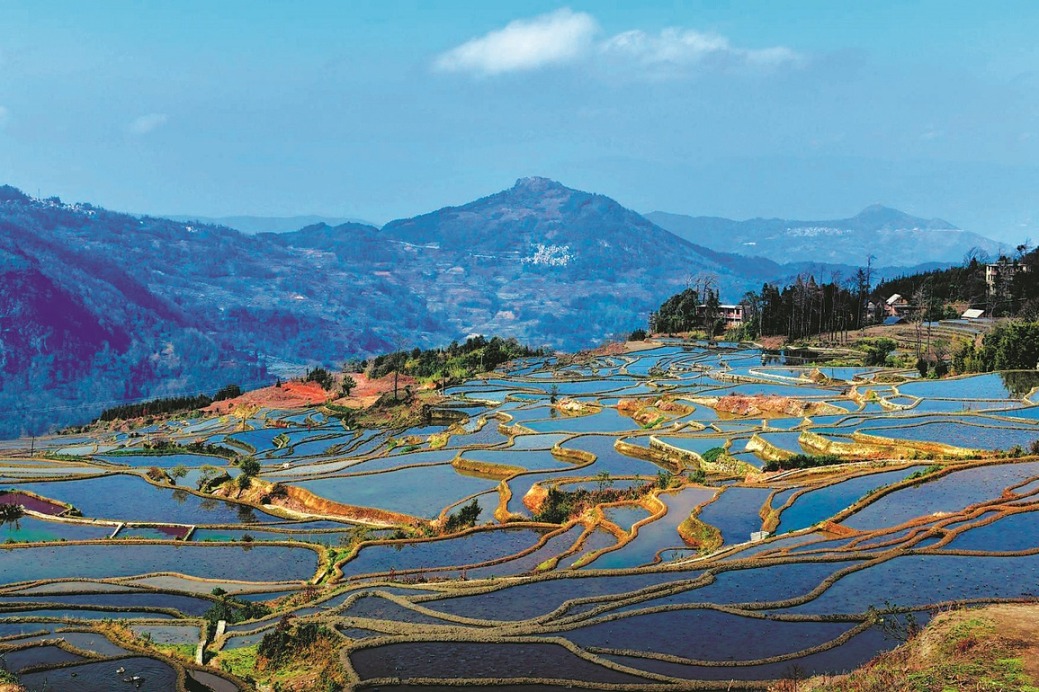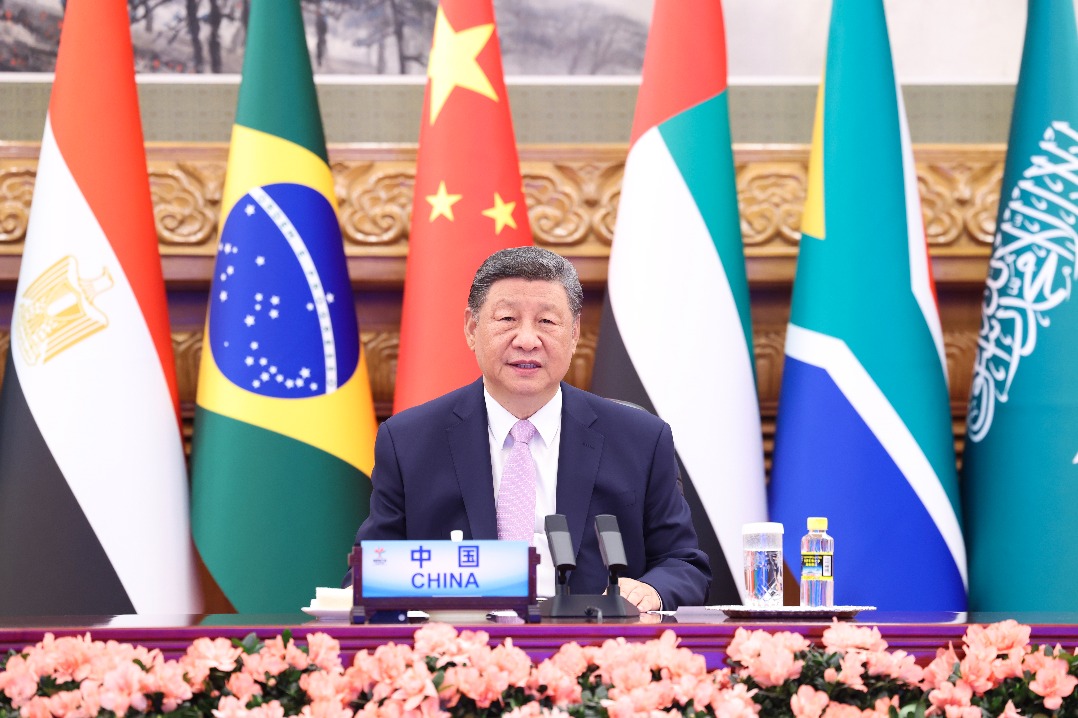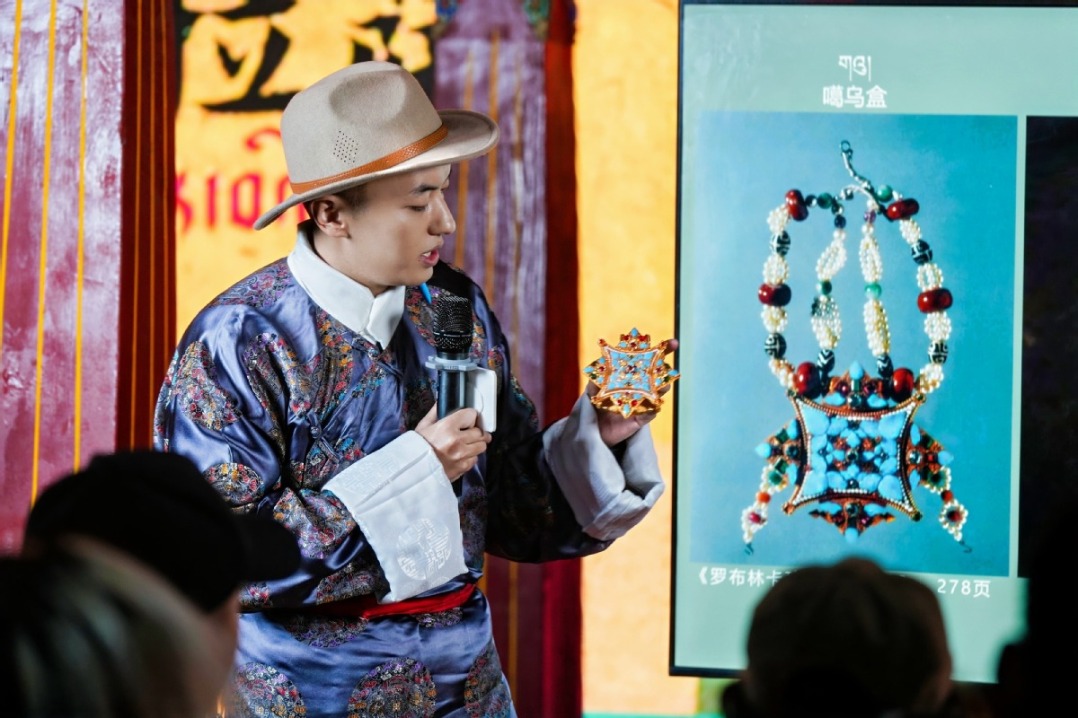Shared hopes and aspirations
South-South cooperation, characterized by strategic depth, multilateral framing and long-term commitments, is redefining global partnerships


Over the past years, China has driven sweeping reforms that have not only reshaped itself but also inspired other countries across the Global South to see modernization as an attainable goal. Nowhere is this more evident than in China's leadership in South-South cooperation, which serves as a bridge between shared histories of struggle and common aspirations for development.
As we mark United Nations Day for South-South Cooperation on Sept 12, it is timely to examine how China's collaborative model has reshaped partnerships across the developing world. Nigeria, Africa's most populous country and the continent's major economy, offers a powerful example of South-South cooperation in action — where shared development visions translate into lasting change.
The agricultural sector is one of the clearest demonstrations of this cooperation. Between 2003 and 2007, the China-Food and Agriculture Organization-Nigeria South-South Cooperation Programme deployed roughly 500 Chinese agricultural technicians who conducted more than 3,700 field visits, 500 demonstration projects and over 200 localized micro projects. The results were transformative: egg production in some farms surged by 60 percent, while rice yields more than tripled per hectare. This was not a one-off intervention. From 2009 to 2015, the program entered its second phase, during which 190 Chinese experts committed to helping Nigeria's agricultural sector, ensuring that capacity-building and knowledge transfer became embedded within Nigeria's agricultural systems.
Infrastructure development under the Belt and Road Initiative further illustrates the depth of this partnership. Strategic projects, such as the Lagos-Kano Standard Gauge Railway, the Warri-Itakpe Railway and the Lekki Deep Sea Port, a $1.5 billion investment capable of handling 2.5 million 20-foot standard containers annually, are transforming Nigeria's connectivity and economic competitiveness. Energy cooperation is equally significant, with the Export-Import Bank of China pledging $1 billion for the 360-megawatt Gurara II Hydroelectric Power Station in Kaduna State.
Beyond economics, cultural and educational exchanges have strengthened people-to-people connections. From hosting a China-themed film festival in Lagos to providing satellite television access to 1,000 rural Nigerian villages, China has worked to foster cultural understanding under the Global Civilization Initiative.
What sets China's South-South cooperation apart is its strategic depth, multilateral framing and long-term commitment to capacity-building. Unlike traditional aid models that prioritize short-term results, China emphasizes sustained engagement. Experts often stay for years, embedding knowledge within local institutions and building durable foundations for growth. This approach spans high-impact sectors — from railways and ports to energy and agricultural modernization — creating multiplier effects that drive regional integration and economic transformation. South-South cooperation, moreover, transcends economics. By incorporating vocational training, cultural exchanges and educational opportunities, it fosters a holistic model of development rooted in mutual respect and shared responsibility.
Initiatives such as the Global Development Initiative and the Global Development and South-South Cooperation Fund, which is capitalized at $4 billion, reflect China's commitment to aligning its cooperation with the 2030 Agenda for Sustainable Development. Approximately 200 Global Development Initiative projects are now operational worldwide, addressing issues ranging from poverty reduction and food security to green development and digital innovation. These initiatives provide a framework for South-South cooperation that is not only practical but also globally relevant.
This year also marks the 80th anniversary of the founding of the UN, an institution that has evolved to be the cornerstone of global peace, development and multilateralism. Amid rising geopolitical tensions and mounting global challenges — from climate change to regional conflicts — China's consistent support for the UN and its principles has been crucial. As UN Secretary-General António Guterres observed, "China is the backbone of multilateralism", contributing over 20 percent to the UN's 2025 budget and standing as the second-largest contributor to peacekeeping operations.
Building on this legacy of multilateralism, President Xi Jinping unveiled the Global Governance Initiative at the 2025 Shanghai Cooperation Organization Summit in Tianjin. The initiative, grounded in principles of "adhering to sovereign equality, abiding by international rule of law, practicing multilateralism, advocating the people-centered approach, and focusing on taking real actions", seeks to ameliorate global governance structures to better reflect the priorities and voices of the Global South. This vision underscores the need for a more inclusive and equitable global order where developing nations have greater agency in shaping policies that impact their futures.
The path forward is clear. To deepen the impact of South-South cooperation, capacity-building initiatives must be expanded, with more long-term residencies for technical experts and vocational trainers to bolster institutional resilience. Infrastructure projects, such as those that have transformed Nigeria, can be replicated based on specific conditions across the Global South to enhance regional connectivity and foster economic integration. Beyond infrastructure, educational and cultural exchanges must be amplified to deepen mutual understanding and foster shared narratives of cooperation and progress. Aligning South-South cooperation more closely with global frameworks such as the Sustainable Development Goals and the Global Development Initiative can enhance transparency and legitimacy, and broader support for the Global Governance Initiative will empower developing nations in decision-making spaces long dominated by advanced economies.
China's development journey — from a nation scarred by war and poverty to a leader in global development — has been fueled by an unwavering belief in the possibility of progress. Today, that belief is expressed through South-South cooperation, which offers a model of partnership grounded in technical expertise, infrastructure investment, cultural exchange and shared values. It is a model that delivers not only growth but also dignity and hope.
As we celebrate South-South Cooperation Day and reflect on the 80th anniversary of the founding of the UN, the convergence of the South-South cooperation, the Global Development Initiative and the Global Governance Initiative signals a hopeful shift toward a more inclusive and cooperative global order. Nigeria's story — from improved food security and enhanced connectivity to empowered communities — demonstrates that development partnerships rooted in solidarity have the power to help transform nations. In the end, progress is not only measured in economic output but in the shared hope and collective aspiration it inspires across the world.
The author is an associate professor and executive director of the Center for Nigerian Studies under the Institute of African Studies at Zhejiang Normal University. The author contributed this article to China Watch, a think tank powered by China Daily. The views do not necessarily reflect those of China Daily.
Contact the editor at editor@chinawatch.cn.

































